Asteroid Impacts And The Oceans: Tsunamis From The Sky

Introduction
Asteroids are known for their destructive potential, having the ability to cause significant damage to life on Earth. One area where asteroid impacts can have a particularly devastating effect is in our oceans. When an asteroid strikes the ocean, it can cause massive waves known as tsunamis, which can cause widespread destruction along coastlines and even penetrate far inland. In this article, we will explore the science behind these catastrophic events and their impact on the planet.
The Science of Asteroid Impacts
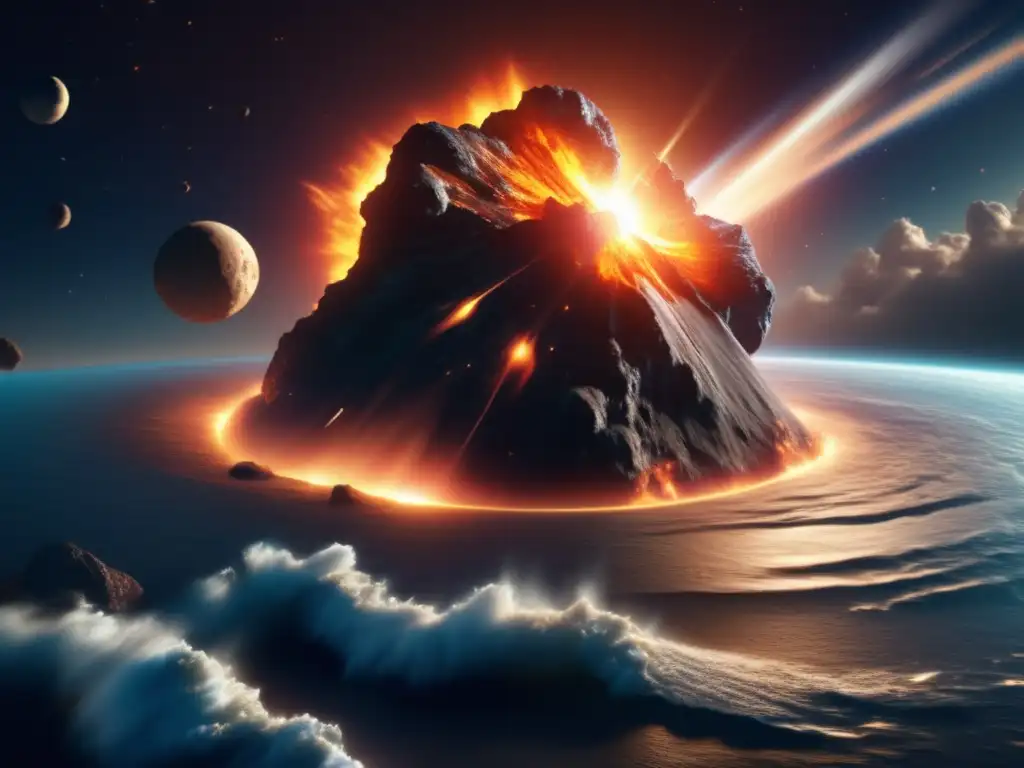
What happens when an asteroid strikes the ocean?
When an asteroid strikes the ocean, the initial impact releases a tremendous amount of energy, causing a shockwave that travels through the water and displaces it. This displacement generates a series of waves that radiate outwards from the impact site, similar to the way ripples spread out when a pebble is dropped into a pond. These waves can travel thousands of kilometers across the ocean, with their size and strength determined by the size of the asteroid, the velocity at which it impacts the water, and the depth of the ocean at the impact site.
How do tsunamis from asteroid impacts differ from natural tsunamis?
Tsunamis generated by asteroid impacts are often much larger and more destructive than those caused by natural events like earthquakes or volcanic eruptions. This is because the energy released by the impact is concentrated in a single point, whereas natural tsunamis are typically caused by the displacement of large volumes of water over a wider area. Another factor that makes tsunamis from asteroid impacts particularly dangerous is that they can strike with little or no warning, making it difficult for people to evacuate in time.
What is the long-term impact of asteroid impacts on the ocean?
Asteroid impacts can have a significant impact on ocean ecosystems, particularly if they occur in shallow waters near the coast. The force of the impact can disrupt the seafloor, creating underwater landslides and releasing large amounts of sediment into the water. This can smother coral reefs and other marine habitats, as well as reduce sunlight penetration, affecting photosynthesis and ultimately leading to the loss of marine biodiversity. Additionally, the heat generated by the impact can cause chemical changes in the water, including acidification and de-oxygenation, further impacting aquatic life.
The Historical Record of Asteroid Impacts
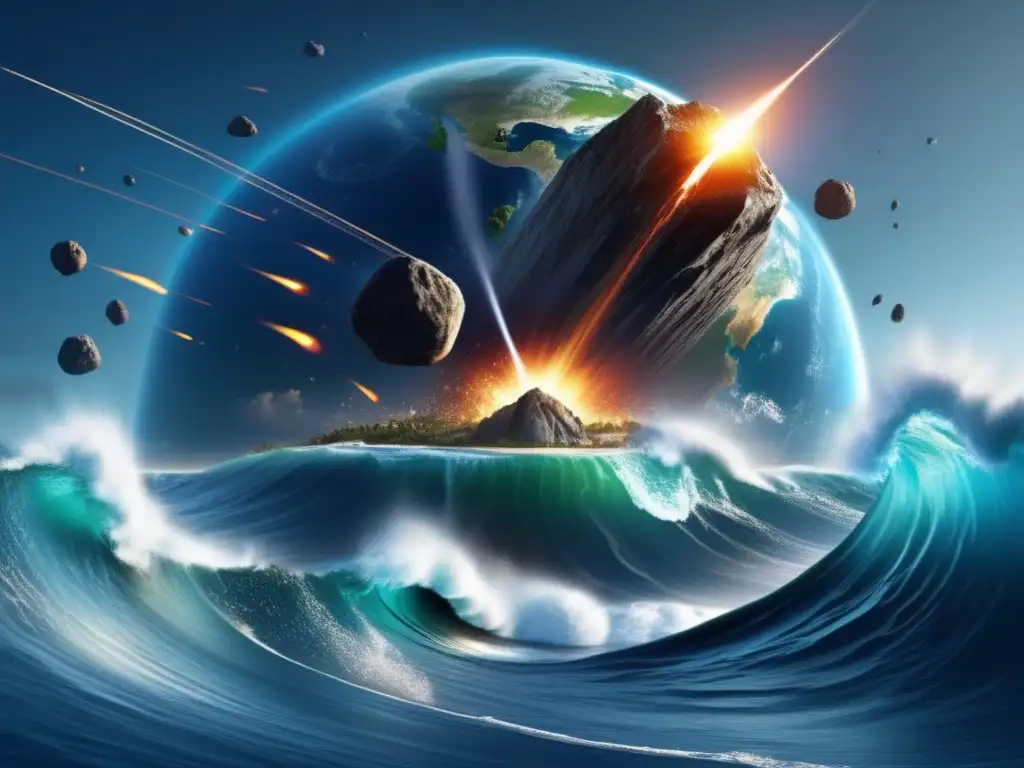
What evidence exists of historical asteroid impacts causing tsunamis?
While direct observations of asteroid impacts causing tsunamis are relatively rare, there is a growing body of evidence that suggests that these events have occurred throughout history. One example is the Chicxulub impact in Mexico, which is believed to have caused the mass extinction of the dinosaurs 65 million years ago. In addition, studies of tsunami deposits in coastal sediments have identified several possible asteroid impact events over the past few thousand years, including one that may have occurred off the coast of Madagascar in 2004 BCE.
Have there been any recent asteroid impact events that have caused tsunamis?
There have been several recent asteroid impact events that have caused tsunamis, although fortunately none have resulted in significant loss of life. In 2007, an asteroid estimated to be around 10 meters in diameter exploded above the sea near Indonesia, generating a tsunami that struck several islands in the area. More recently, in 2013, a larger asteroid exploded over the Russian city of Chelyabinsk, causing widespread damage to buildings and injuring thousands of people.
What is being done to monitor and prepare for potential asteroid impacts?
Astronomers and space agencies around the world are actively monitoring near-Earth asteroids to identify potential impact threats and develop strategies to prevent them. These efforts include both ground-based and space-based telescopes, as well as missions to study the composition and behavior of asteroids in more detail. In addition, emergency management agencies in coastal areas are working to improve their early warning systems and evacuation procedures in the event of a tsunami from an asteroid impact.
The Future of Asteroid Impacts and the Oceans
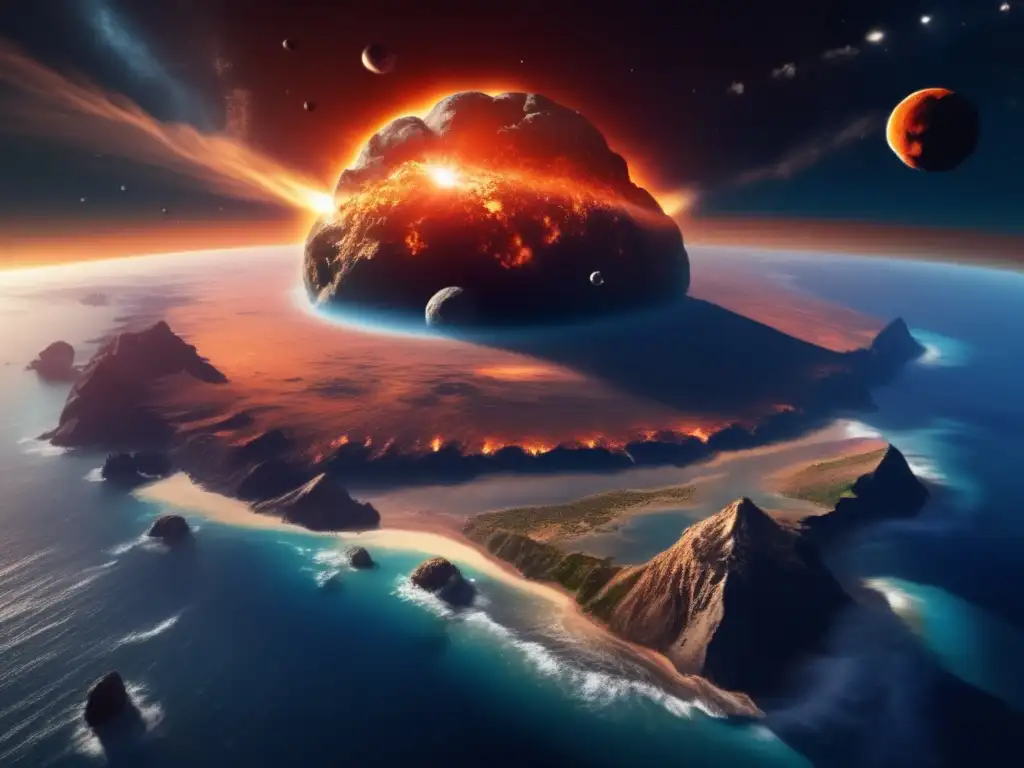
Are we likely to experience a large-scale asteroid impact in the future?
While the chances of a catastrophic asteroid impact are relatively low, they remain a distinct possibility, and the consequences could be devastating. In order to minimize the risk of such an event, it is crucial that we continue to invest in asteroid monitoring and detection technologies, as well as in strategies to deflect or destroy an incoming asteroid if necessary.
How can we mitigate the damage caused by tsunamis from asteroid impacts?
The key to minimizing the damage caused by tsunamis from asteroid impacts is early warning and preparedness. This includes improving our ability to detect and track incoming asteroids, as well as developing effective evacuation procedures and emergency response plans. In addition, efforts to mitigate the long-term environmental impact of such events should focus on restoring and protecting affected ecosystems, as well as supporting scientific research into marine biodiversity and ecosystem resilience.
What role do individuals and communities play in mitigating the impact of asteroid events?
Individuals and communities can play a crucial role in preparing for and responding to asteroid impacts and tsunamis. This includes staying informed about potential risks and evacuation procedures, as well as supporting efforts to improve our understanding of these events through scientific research and education. By working together, we can help to minimize the impact of these catastrophic events and ensure that our oceans and coastal communities remain safe and resilient.
Frequently Asked Questions
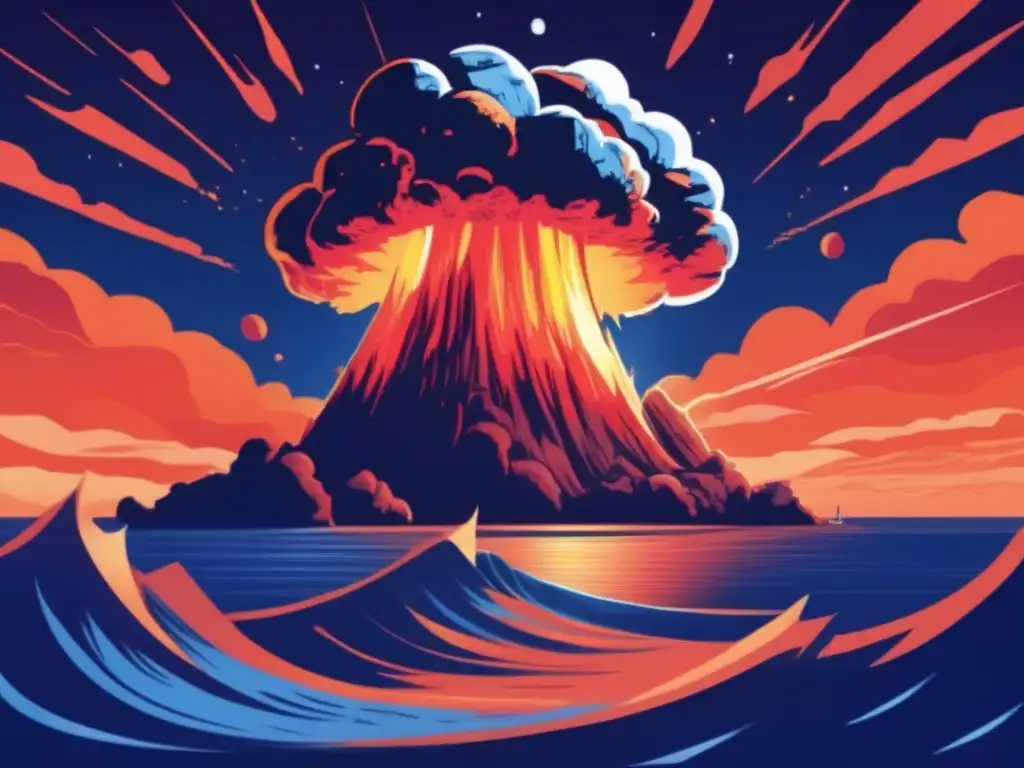
-
Can an asteroid impact cause a global tsunami?
Yes, an asteroid impact in a large body of water such as an ocean has the potential to generate a series of waves that could propagate across the entire planet and cause widespread devastation along coastlines.
-
What are some warning signs that an asteroid impact may occur?
There are several warning signs that an asteroid impact may occur, including the observation of a previously unidentified object in the sky that is rapidly moving towards Earth, or the detection of unusual seismic activity in the vicinity of the impact site.
-
Can tsunamis from asteroid impacts be predicted?
Tsunamis from asteroid impacts can be difficult to predict due to the complex nature of the phenomena involved. However, advances in monitoring and detection technologies are improving our ability to anticipate and prepare for these events.
-
How long does it take for a tsunami from an asteroid impact to reach the coast?
The time it takes for a tsunami from an asteroid impact to reach the coast depends on a number of factors, including the size of the asteroid, the depth of the ocean at the impact site, and the distance from the coast. In some cases, tsunamis can arrive within minutes of the impact, while in others it may take several hours or even days.
-
What measures are being taken to prevent or mitigate the risk of asteroid impacts?
Astronomers and space agencies around the world are monitoring near-Earth asteroids to identify potential impact threats and develop strategies to prevent them from striking Earth. These efforts include both ground-based and space-based telescopes, as well as missions to study the composition and behavior of asteroids in more detail.
Conclusion
Asteroid impacts in our oceans have the potential to cause massive destruction and loss of life. While the chances of a catastrophic event occurring are relatively low, it is crucial that we continue to invest in monitoring and detection technologies, as well as in early warning and preparedness strategies. By working together, we can help to minimize the impact of these devastating events and ensure that our oceans and coastal communities remain safe and resilient.
If you have any thoughts or questions about this article, please share them in the comments section below. Thank you for reading and engaging with Asteroid Realm!
Additional Resources
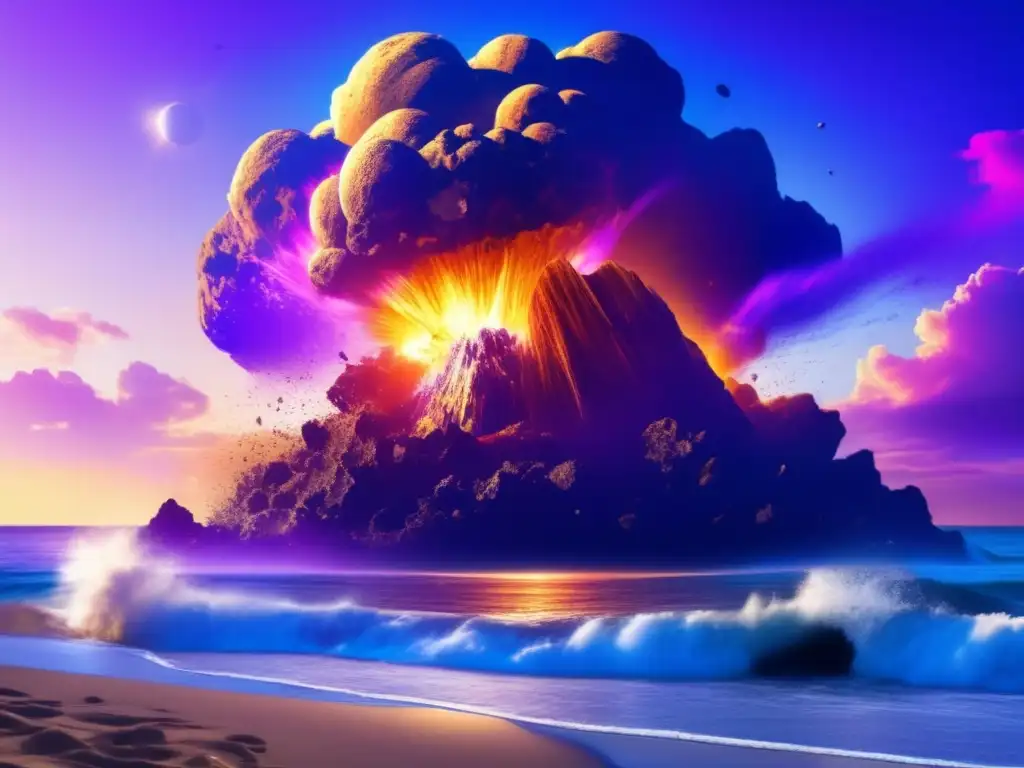
- NASA's Planetary Defense Coordination Office
- United Nations Decade of Ocean Science for Sustainable Development
- PBS NOVA: Asteroid Extinction
 Gauging The Threat: Asteroid Sizes And Impact Severity
Gauging The Threat: Asteroid Sizes And Impact Severity The Sky Is Falling: Myth And Reality Of Asteroid Impacts
The Sky Is Falling: Myth And Reality Of Asteroid Impacts Impacts From Above: A Chronology Of Major Asteroid Strikes
Impacts From Above: A Chronology Of Major Asteroid StrikesIf you want to discover more articles similar to Asteroid Impacts And The Oceans: Tsunamis From The Sky, you can visit the Asteroid Impacts category.
Leave a Reply

Articulos relacionados: